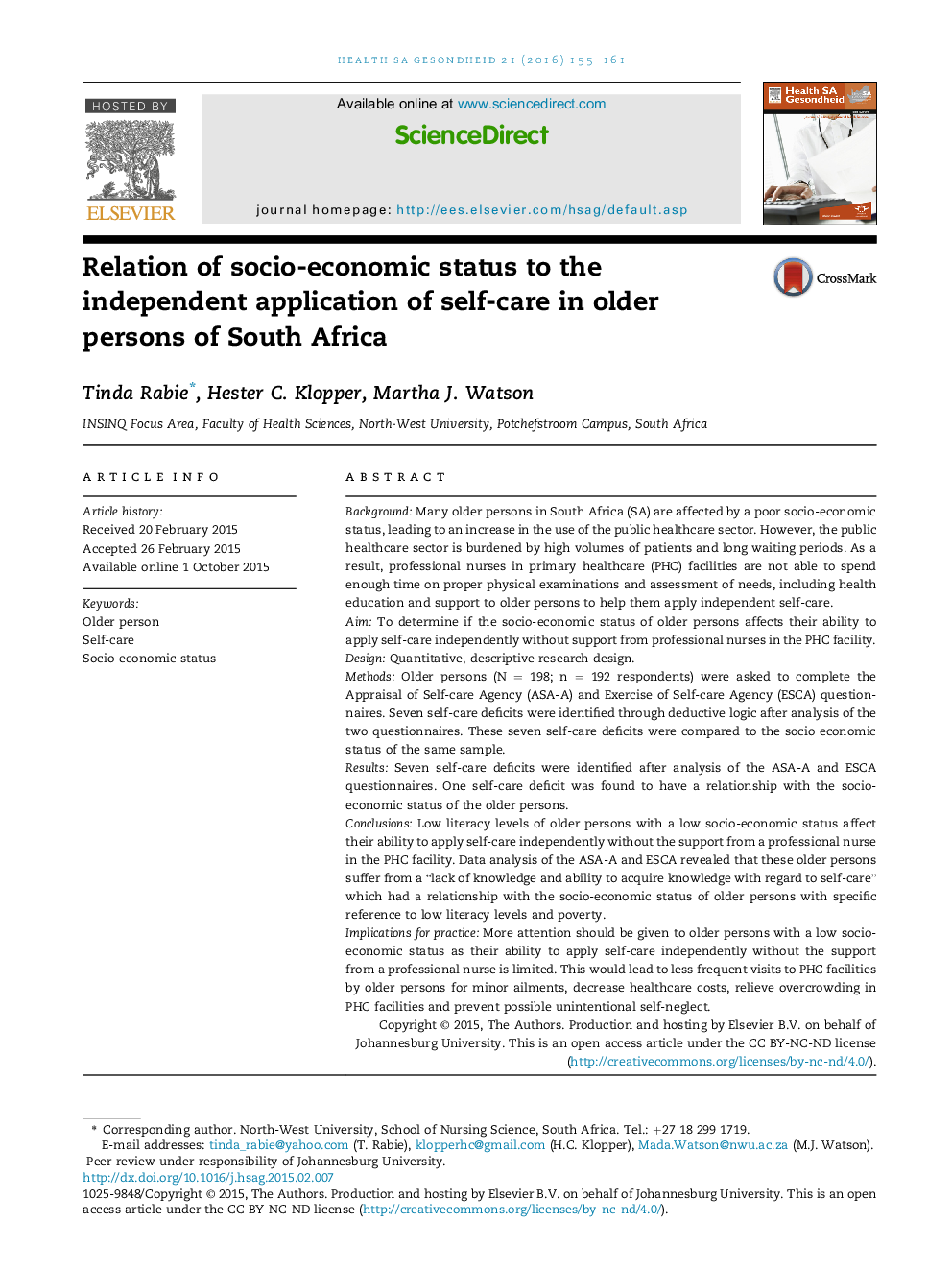| کد مقاله | کد نشریه | سال انتشار | مقاله انگلیسی | نسخه تمام متن |
|---|---|---|---|---|
| 2650624 | 1563917 | 2016 | 7 صفحه PDF | دانلود رایگان |
• From practical experience the researchers realised that there is a lack of attention with regard to self-care of older persons in primary healthcare clinics.
• The researchers therefore determined whether the socio-economic status of an older person has an effect on his/her ability to apply self-care.
• Low literacy levels of older persons with a low socio-economic status affect their ability to apply self-care independently.
BackgroundMany older persons in South Africa (SA) are affected by a poor socio-economic status, leading to an increase in the use of the public healthcare sector. However, the public healthcare sector is burdened by high volumes of patients and long waiting periods. As a result, professional nurses in primary healthcare (PHC) facilities are not able to spend enough time on proper physical examinations and assessment of needs, including health education and support to older persons to help them apply independent self-care.AimTo determine if the socio-economic status of older persons affects their ability to apply self-care independently without support from professional nurses in the PHC facility.DesignQuantitative, descriptive research design.MethodsOlder persons (N = 198; n = 192 respondents) were asked to complete the Appraisal of Self-care Agency (ASA-A) and Exercise of Self-care Agency (ESCA) questionnaires. Seven self-care deficits were identified through deductive logic after analysis of the two questionnaires. These seven self-care deficits were compared to the socio economic status of the same sample.ResultsSeven self-care deficits were identified after analysis of the ASA-A and ESCA questionnaires. One self-care deficit was found to have a relationship with the socio-economic status of the older persons.ConclusionsLow literacy levels of older persons with a low socio-economic status affect their ability to apply self-care independently without the support from a professional nurse in the PHC facility. Data analysis of the ASA-A and ESCA revealed that these older persons suffer from a “lack of knowledge and ability to acquire knowledge with regard to self-care” which had a relationship with the socio-economic status of older persons with specific reference to low literacy levels and poverty.Implications for practiceMore attention should be given to older persons with a low socio-economic status as their ability to apply self-care independently without the support from a professional nurse is limited. This would lead to less frequent visits to PHC facilities by older persons for minor ailments, decrease healthcare costs, relieve overcrowding in PHC facilities and prevent possible unintentional self-neglect.
Journal: Health SA Gesondheid - Volume 21, December 2016, Pages 155–161
